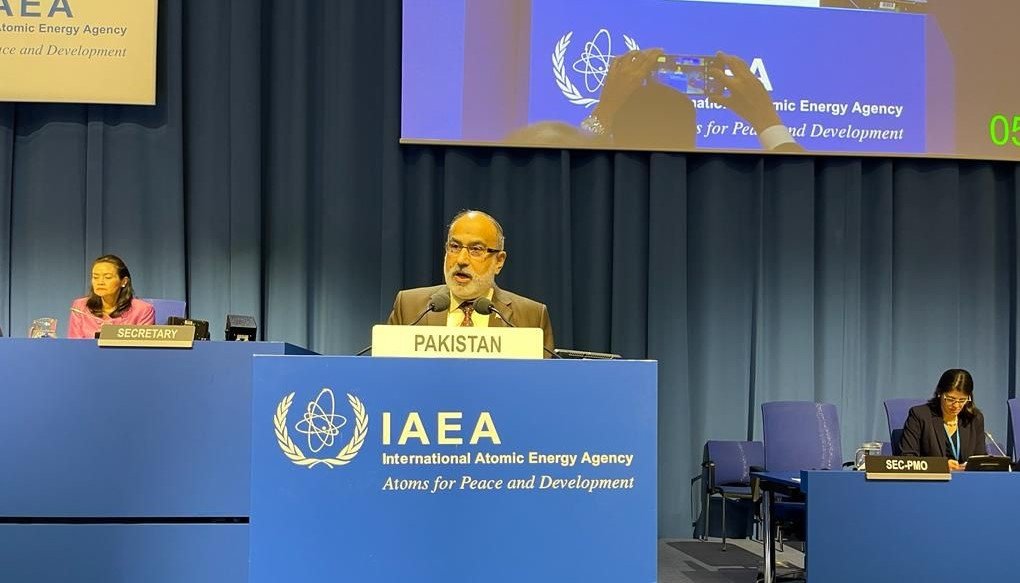Vienna, 27 September 2022 (TDI): The Chairman of the Pakistan Atomic Energy Commission (PAEC), Dr. Raja Ali Raza Anwar has called for Collective Action on Climate Change while Advancing Peaceful Uses of Nuclear Science and Technology.
The PAEC Chairman made these remarks while addressing delegates at the 66th General Conference of the International Atomic Energy Agency (IAEA). He emphasized the enhanced collaboration and participation of member states with the IAEA in advancing peaceful uses of nuclear science and technology.
The Chairman highlighted that global issues require global solutions, underlining that Pakistan remains one of the top ten most vulnerable countries to climate change.
The ongoing catastrophic floods in Pakistan demanded immediate global action to curb greenhouse gases emission. He further added that the disaster had cost immeasurable damage to the economy, livelihoods, and the infrastructure at large. The Chairman shared that the total economic loss was over 40 billion USD.
Moving forward, the Chairman advocated the need to form a global fund to mitigate climatic disasters in developing countries which is crucial to reduce human suffering.
While expressing support for unrestricted cooperation and access to nuclear power, the Chairman shared that nuclear technology was playing a key role in multiple fields including health and agriculture.
He shared that the Pakistan Atomic Energy Commission has added one more hospital to its fleet of 18 cancer hospitals, with the construction of another hospital underway. These hospitals cater to over one million patients annually.
Moreover, he reiterated Pakistan’s full support of the DG IAEA’s Rays of Hope and ZODIAC initiatives by offering Pakistan’s expertise and facilities to impart training and share best practices with developing countries.
The Chairman also emphasized that the efforts of the Parties to the Convention on Physical Protection of Nuclear Material (CPPNM) and its Amendment should remain focused on its universalization and effective implementation at the National level.
The Chairman shared that Pakistan remains committed to continuing full compliance with its obligations, and is on course to meet them as outlined in its safeguards agreements. Furthermore, considering nuclear security as a national responsibility, he added that Pakistan has developed a comprehensive nuclear security regime, which is regularly reviewed and updated in light of the CPPNM and its 2005 amendment (Amended CPPNM), IAEA guidance documents, and international best practices.
Recounting Pakistan’s achievements in the fields of power generation, agriculture, human health, industry, and environment, the Chairman highlighted the benefits of nuclear technology for Pakistan.
He also underscored that Pakistan highly valued its cooperation with the IAEA to advance peaceful uses of nuclear science and technology and remains committed to further building on these collaborations.
Aiman Iqbal is the Managing Editor at the Journal of Peace and Diplomacy published by the Institute of Peace and Diplomatic Studies (IPDS), and the Assistant Editor of The Diplomatic Insight magazine. She holds an MPhil in International Relations. She can be reached at aimaniqbal106@gmail.com








